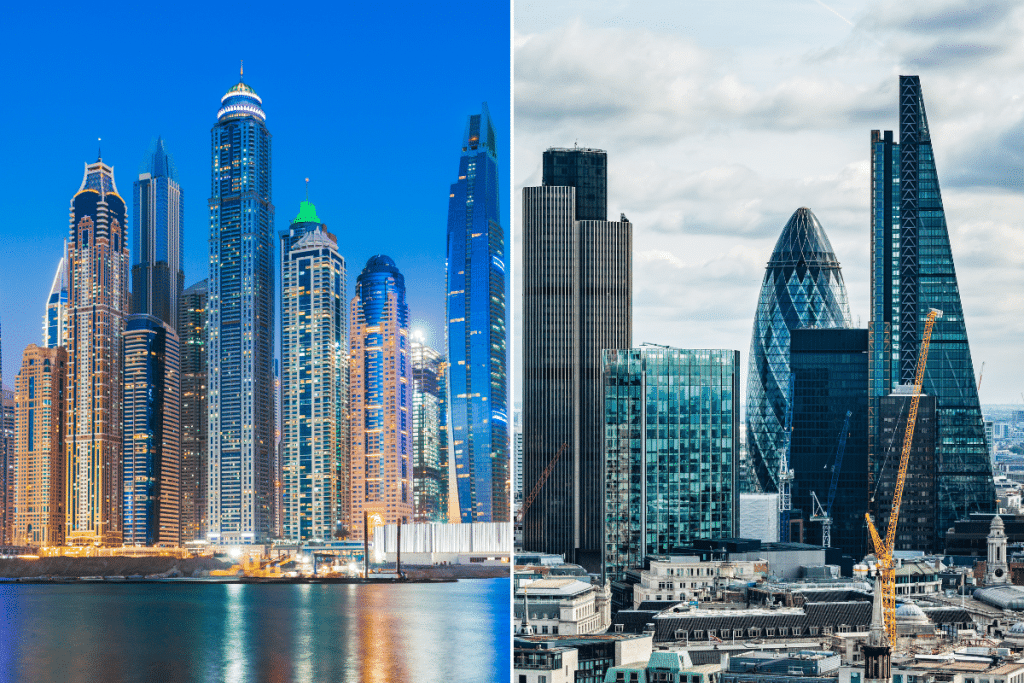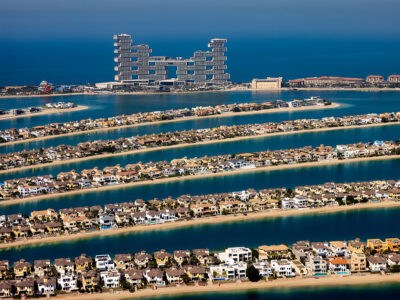In a classic case of London’s loss becoming Dubai’s gain, super rich global investors are shifting their focus from prime central London to the Gulf city for acquiring multi-million, super-luxe residential units amid concerns about the new Labour government’s tax and spend priorities, market study and sector experts said.
Dubai’s steady and high yielding return on investment (RoI) potentials from property investments are adding to the lure for cash-rich buyers to shift their focus to the emirate.
Besides, even in the falling residential real estate market in prime London neighbourhoods, investors from the Middle East, along with those from the US, have emerged as the largest buyer groups, driving demand and accounting for majority of sales in the £15 million to £25 million price range, the report by UK’s Beauchamp Estates said.
Dubai is benefitting from top-tier home buyers, while London’s prime property market is under pressure given the change in government, the report said.
“For investors, Dubai’s combination of affordability and robust returns is unparalleled,” Ghassan Khairallah, Director – Sales at Huspy, the Dubai-based leading real estate consultancy and mortgage firm, told Arabian Business.
“The opportunity for investors to get significantly more value and ROI per square foot [in Dubai] is very attractive,” he said.
Khairallah said with $1 million fetching larger homes in Dubai as compared to London, it is advantageous for the UAE in the near term.
Dubai not a new destination for global investors

Industry insiders said the current shift from London to Dubai is not very surprising as the Gulf city is not a new destination for global investors.
UAE’s high quality of life, safety, year-round sunshine and global connectivity have always appealed to home buyers, including HNWIs (high net worth individuals), they said.
The Huspy senior executive, however, said what stands out now is the extremely competitive per square foot cost and the high tax-free ROI of 6-8 percent on average in Dubai’s residential real estate market.
“On the contrary, in London’s prime property segment, prices have been flat in recent months.
“With a new government being appointed in the UK, investors there are also considering the potential impact on taxation and gains,” he said.
The analysis by Beauchamp Estates,which looked at sales of super prime residential homes in London, valued over £15 million in the first half of 2024, showed transactions falling to £731 million, compared to £829 million in the same year-ago period.
The [London residential real estate] sector’s struggles were largely attributable to a dramatic drop off in investment in ‘prime central London’ (PCL) homes, as onlookers wait to see the policy environment under the new Labour government, it said.
The report said Dubai’s prime property market, on the other hand, is attracting significant investment, surpassing London, in transactions for homes over $10 million.
It also showed the trend of wealthy buyers opting for smaller, more manageable properties in Dubai, which are ideal for occasional stays.
Wealthy investors buying to let, use as holiday home

Khairallah said while the use case for every purchase is different, most investors are buying to let or to use as a holiday home – unless they are choosing to relocate their families.
The demand ranges from villas in Dubai Hills to ultra-luxurious homes on Palm Jumeirah to apartments in the Dubai Downtown and DIFC areas.
He said though on average, investors are paying a minimum of AED 2 million, in recent months, their firm has seen the demand for higher end segment surging.
“For some HNWIs with larger budgets, this could mean spending over $10 million on a Dubai property especially in prime areas,” the Huspy senior executive said.
Industry insiders said though the UK comprises a large number of wealthy investors in Dubai, the market is also seeing demand from investors from India, China, the US, and some pockets of Europe and Asia.
“The one thing that differentiates wealthy buyers from the rest is the ability to move fast and close deals.
“This means that while there are many buyers waiting on the sidelines for some price correction, prices in fact have continued to go up,” Khairallah said.






